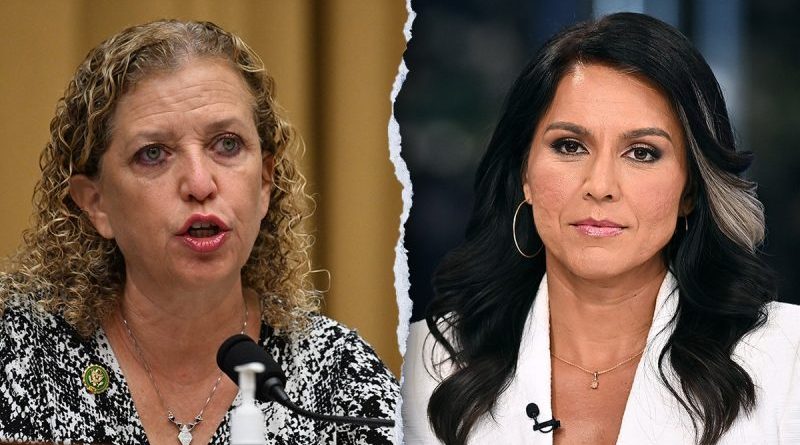Wasserman Schultz’s Accusation of Tulsi Gabbard as Russian Asset Sparks Controversy
In a recent controversy that sparked heated debate within political circles, Debbie Wasserman Schultz, former chairwoman of the Democratic National Committee, faced backlash for insinuating that Tulsi Gabbard, a fellow Democratic congresswoman and presidential candidate, is a Russian asset. The accusation, made during a live television interview on MSNBC’s The Beat with Ari Melber, quickly drew sharp criticism from various corners of the political spectrum.
Wasserman Schultz’s assertion came in response to a question about Hillary Clinton’s remarks suggesting Gabbard was being groomed as a potential third-party candidate by Russia to disrupt the 2020 election. The Hawaii congresswoman, a military veteran known for her anti-interventionist foreign policy views, vehemently denied the accusations, labeling them as baseless smears aimed at silencing dissenting voices within the Democratic Party.
The insinuation that Gabbard is a Russian asset is not a new allegation within the political landscape. Since her announcement to run for president, Gabbard has faced scrutiny and criticisms from establishment figures, who have often accused her of being a divisive figure and a liability to the Democratic Party. These accusations have been met with fierce pushback from Gabbard’s supporters, who view her as a principled leader advocating for a more restrained and diplomatic approach to international affairs.
The controversy surrounding Wasserman Schultz’s remarks underscores the deep divisions and suspicions that exist within the Democratic Party, particularly with regards to foreign policy and national security issues. The use of inflammatory rhetoric and unsubstantiated claims to attack political opponents has become a common tactic in today’s hyper-polarized political climate, often overshadowing substantive debates on policy matters.
Critics of Wasserman Schultz argue that such accusations not only undermine the credibility and integrity of the political discourse but also serve to deflect attention from pressing issues facing the country. By resorting to conspiracy theories and character assassinations, politicians risk alienating voters and eroding public trust in the democratic process.
As the 2020 election season heats up and political tensions continue to escalate, it is essential for policymakers and leaders to engage in constructive dialogue and debate based on facts and evidence, rather than resorting to sensationalism and fear-mongering. The future of American democracy hinges on the ability of its leaders to rise above partisan bickering and work towards a common vision of progress and unity.
In conclusion, the controversy surrounding Debbie Wasserman Schultz’s accusations against Tulsi Gabbard sheds light on the toxic nature of contemporary political discourse and the challenges facing the Democratic Party as it navigates through a highly contentious election cycle. Moving forward, it is imperative for political leaders to prioritize civility, transparency, and honesty in their interactions, fostering a culture of mutual respect and understanding in the pursuit of a stronger and more inclusive democracy.




